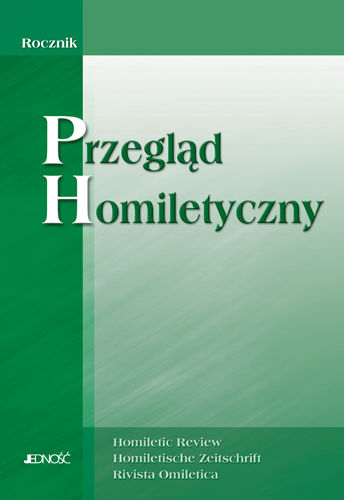„Nie będziesz miał cudzych bogów przede Mną” (Wj 20,3; Pwt 5,7). Kim chce być Bóg dla człowieka?
”Thou shalt have no other gods before me” (Ex. 20,3; Deut. 5,7). Who does God want to be come for people?
Author(s): Stanisław HaręzgaSubject(s): Christian Theology and Religion
Published by: Katolicki Uniwersytet Lubelski Jana Pawła II - Wydział Teologii
Keywords: Ten Commandments; First Commandment; cult; idolatry; lesser gods
Summary/Abstract: This article attempts to present the relevance of the First Commandment “Thou shalt have no other gods before me” (Ex. 20,3; Deut. 5,7). The biggest reason to fight for the sole right of God’s precedence in human life is the truth about God as the Saviour, which can be found in the introduction to the Ten Commandments (Ex. 20,2; Deut. 5,6). The Commandment does not allow the cult of other gods, and highlights the need of the only relation with Yahweh. Additionally, it does not allow to depict God in the monuments or in the paintings (Ex. 20,4-6; Deut. 5,8-10). Today, this rule is valid in the case of non-sacral idolatry, which manifests itself in: superstitions, astrology, ecology, money worshipping, materialism, idolizing celebrities, power worshipping, atheism. Preaching should expose the hidden examples of idolatry, yet always firstly promote the redeeming and liberating love of God, revealed in Jesus Christ.
Journal: Przegląd Homiletyczny
- Issue Year: 2012
- Issue No: 16
- Page Range: 33-39
- Page Count: 7
- Language: Polish

